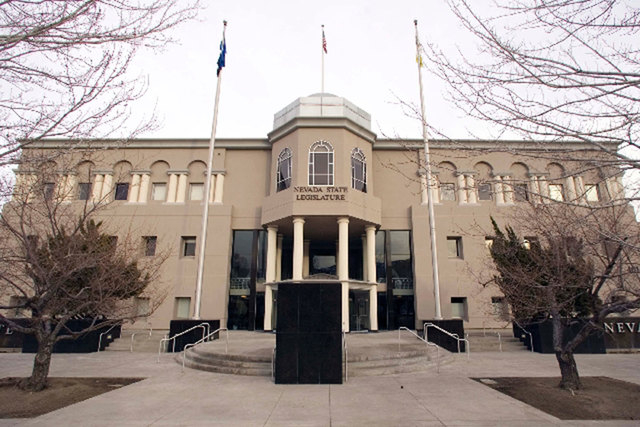Bill to bring natural gas to Nevada’s undeveloped areas stirs debate

CARSON CITY — An economic development bill making its way through the Legislature that is aimed at expanding natural gas coverage to unserved areas of Nevada has the potential to cost all customers of a utility and not just those receiving the benefit.
Senate Bill 151 has passed out of the Senate Commerce and Labor Committee and is awaiting a vote in the Senate before heading to the Assembly.
The bill would direct the Public Utilities Commission to adopt regulations to allow a natural gas utility to file an application for approval of these types of economic development projects and “allow appropriate cost recovery methodologies for approved projects.”
Debra Gallo, representing Southwest Gas, testified in support of the measure at a committee hearing on Feb. 18, saying it would make unserved areas of Nevada competitive with other states in attracting economic development projects.
Some of the areas not now served include Spring Creek near Elko as well as Apex and Mesquite in Southern Nevada, she said.
Warren Hardy, representing the city of Mesquite, said the community is a prime area for economic development with land, water, a workforce and access to Interstate 15. But because there is no natural gas, the community has lost at least 12 major projects that would have come to the community otherwise, he said.
“Unless we get natural gas to Mesquite, we might as well just stop our economic development efforts,” Hardy said.
Natural gas is far less expensive than propane or electricity.
George Ross, representing the city of North Las Vegas and the Las Vegas Global Economic Alliance, called the measure one of the most important of the session. Apex is one of the best potential areas for economic development in Southern Nevada but it does not have natural gas service, he said.
But Dan Jacobsen, representing the Attorney General’s Bureau of Consumer Protection, expressed concern with language in the bill stating that all those receiving an “indirect benefit” could be required to pay for such a project.
While neutral on the bill, the office offered an amendment to make it clear that “indirect benefit” refers to those people who live in an area to be served who will receive some benefit and not all ratepayers with a utility.
All ratepayers should not be required to pay more in order to expand the infrastructure in one specific geographic area, Jacobsen said.
In Utah, for example, a surcharge was levied in the area to be benefited over a period of 10 or 15 years to pay for the expansion, he said.
The amendment was not accepted by the committee, however, when it voted Feb. 27 to pass the bill out.
As the bill is written, it would be up to the PUC to evaluate each project and determine what cost recovery method should be used.
Sen. Kelvin Atkinson, D-Las Vegas, who introduced the bill on behalf of Southwest Gas, said the objective is not to make all ratepayers pay for an expansion project. But everyone will benefit with such projects because of the economic benefits, he said.
“The problem is that it is not available in certain areas and so we’ve got to do something about that,” Atkinson said.
Contact Sean Whaley at swhaley@reviewjournal.com or 775-687-3900. Find him on Twitter: @seanw801.